The Division Between Good and Bad
Every philosopher produces a division between good and bad. This is what (I think) is meant in Plato’s Republic when Socrates says the Philosopher is compelled to return from the Realm of The Sun to the world of shadows: it’s impossible to speak about what has been made visible by the sun without at the same time designating some type of man as an ideal type. This artifice is a requirement of language that compels everyone. Even a radical egalitarian-cultural-racial-Marxist produces, promotes, and defends an ideal type. Even Tolstoy was bound by this necessity. The philosopher is a type of man who understands this compulsion.
· In Plato, “the Philosopher.”
· In Aristotle, “the landed Aristocrat.”
· In Cicero, “The Citizen. The Stoic when no citizenship is possible.”
· In Machiavelli, “The Prince who makes a republic.”
· In Hobbes, “the Author of Monarchy. Namely, Hobbes himself.”
· In Locke, “The Rational and Industrious man.”
· In Rousseau, “The Citizen. The sentimental fruit when no citizenship is possible.”
· In Nietzsche, “The Overman and his Free Spirits.”
· In Strauss, “The Philosopher in the Scholar’s robe.”
Without entering into Socrates’ argument, we can see the necessity of ideals by looking at bare necessity. A division between good and bad men is justified even if we only consider the bare-minimum standard, self-preservation. No division would be necessary if all men were equally good and nature limitlessly bountiful. Since men are often lazy and vicious, and nature is not limitlessly plentiful, division is justified. Locke has not been refuted: man’s right to preserve his life gives him the right to join with others over and against that original “society of mankind.” – This fundamental division is not enough though, because even after the separation has been made from mankind, there must be a separation within the society itself between good and bad, or better and worse. A society needs a law. A society will allow some deviation from its ideal, from the ideal which made the original separation possible, but it must needs draw a line. Of this ideal there will be exemplars, failures (mediocrities to criminals), and everything in-between.
Our Bad Time
Good men have the right of separation and of rule. In good times, men distinguish between law abiding and criminal, not to mention the extra-legal distinctions of breeding, family, wealth, natural gifts, and so on. But our times are bad times—our times are so bad that not only is it often illegal to make those extra-legal distinctions, our own government is actively seeking to define away criminality.
According to our nation’s “most advanced” thinkers and public servants, everyone who is poor or lower class (or promoting revolution in the name of the lower classes) is exempt from legal censure. A poor man is not genuinely responsible for his actions; they cannot genuinely break any laws. If it ever appears to be the case that the poor and desperate are breaking laws, we are told that the law is criminal, i.e., unconstitutional. The circumstances that put the poor and desperate man at odds with the law are unjust circumstances. The poor and desperate man is an oppressed man or, if not oppressed, then pitiable.
Only “the privileged” can be, properly, criminal. The very people on whom the civilized life rests are the people this ideology says are the bad people.
Privilege, fundamentally, is power. All inequalities are conventional; all inequalities in one’s favor are “privileges,” in other words, all inequalities in one’s favor produce a debt; privilege must be paid for. Power can only be legitimately exercised if it is exercised for others. Power used for the possessor of power is illegitimate. In other words, only hypocrites can legitimately wield power. Only men who are deceivers and self-deceivers can wield power legitimately.
(Consider also: since all those who have power, who enjoy inequality to their benefit, are essentially indebted to those who are not their equals, who are poorer and everything else, those that they help owe them now gratitude. The privileged owe the underprivileged. History’s unfortunate peoples are thereby encouraged to cast off God, to separate themselves from the divine. They are encouraged to view existence as essentially unjust and any improvement in their existence is, essentially, late.
A wealthy nation raises a class of former underlings—and then owes them for the time before it could raise them, the time when they were creating the privilege. How could that people be thankful? I mean the former-underlings, but also the self-immolating “privileged” men? Under this dispensation, no one—powerful and dispossessed alike—has any room for the feeling or exercise of gratitude. The privileged must feel guilty for being so late in forfeiting their privilege, which is indeed a painful thing. And if a privileged man forfeits his privilege out of gratitude to the underprivileged he paradoxically gains freedom from the underprivileged. He has paid them. They have to stop demanding he pay them more. But this is impossible so it turns out the privileged can never adequately pay the underprivileged. How can a white man get out from underneath hundreds of years of mastery?
History’s unfortunate people must feel frustrated at getting the good things so late; how much better they would feel and be if only they had the centuries or even decades of privilege unjustly taken from them! What could these people have to do with Nature or Nature’s God? Their whole lives are spent in correcting His improvidence or essential injustice. Where there is no gratitude, there is no god. Where there is no god, there is no law. And here is a secret: not only is there no law for godless people, but they cannot even be married. It’s impossible for ungrateful people to put up with each other.
This is of course unbearable. Against this philosophy raises up a standard by which men can be distinguished, by which the better men can justify their quest for perfection, i.e., their power, right of exclusion and much else that is hard for modern sensibilities. Philosophy establishes (in thought) the grounds for man’s gratefulness. By showing men the strength and necessity of nature, and therefore of their part within the whole, philosophy makes it possible for men to establish law and the rank ordering based on law.
Nietzsche and Leo Strauss were the last two chances the West had of re-establishing law and of extricating itself from this ideological death-labyrinth. However: not only did each uphold different types of men, but they took different approaches (I don’t say entirely) to establishing their respective types. Nietzsche sought to establish a new radical enlightenment, so it is only fitting that he took the style of philosophy created by the earlier enlightenment thinkers and tweaked it. Strauss accuses Nietzsche and the enlightenment generally of being insufficiently philosophic. He teaches that our present malaise is due to philosophy’s insufficient response to communism, i.e., that enlightenment philosophy mocked egalitarianism but did not refute it. Plato, he contends, refuted it and it is to Plato and the ancients we must look for a way out of our present predicament.
Enlightenment Thought
Why did Nietzsche seek to radicalize the Enlightenment?
Consider the earlier Enlightenment’s war on theology and miracles. How did Enlightenment philosophers attack miracles? They did not disprove miracles. Rather, Enlightenment philosophy made it almost impossible for an honest man to admit any miraculous claims. An honest man will never let his desire for miracles lead him to a belief in them; nor would he be very willing to admit the claims of others when those claims could be traced to such desires. In order for any religious claims to be plausible, they would need to be stripped of interest; religious claims—indeed all claims about metaphysics and nature—need to prove themselves as disinterested claims, otherwise they would be suspicious. An honest man does not let himself be deluded by his own desires, but what is a religion that is not desired?
From this developed the famous “relativism” and “utilitarianism,” both of which would get exploded by Nietzsche to make way for the reintroduction of nobility.
It is easy to see how utilitarianism would develop from a demand for honesty. At first, no claims but disinterested claims could be believed. If a man wanted to experience miracles, that was a good reason to doubt him when he eagerly announced he had witnessed a miracle.
Now apply this to morals: if people wanted others to sacrifice themselves for the common good, that was a good reason to doubt that one was required to do so, i.e., their demands for noble self-sacrifice are undercut by their evident gain from such sacrifice. Or again, in the realm of moral commands such as chastity: cui bono?
While these kinds of thoughts are demoralizing in a strong sense of that word, there were still many moralized men who were not interested in giving up morality. There were men who were persuaded that all moral and metaphysical claims are only trustworthy when we are being honest with ourselves. “We must be honest with ourselves. We must also have morality.” These two dictums inspired the utilitarian to say, “Well then, we will be honest with ourselves and admit that all morality is a matter of self-interest. The truly moral man is the prudently self-interested man. Once we establish just what exactly is in man’s interest, we can figure out what morality really is. Now, man’s first interest is self-preservation…” And so, the utilitarians sought to prove that there was a natural morality based on self-interest by starting with the “hard facts” one finds in books like Machiavelli’s Prince.
Then there is the more complicated thing of relativism, whereby no moral claims can be genuinely demonstrated: The utilitarian hope was a naïve one, because different people at different times and places, etc., will have different advantages. Different types of men would have different advantages. The truth is that there is no real “truth.” It seems so obvious that all morality is determined by the interests of society or individuals in different times and places.
This occasioned a genuine crisis. Oliver Wendell Holmes admirably summed up the rotten position when he reduced truth to be “whatever is widely accepted”:
“When men have realized that time has upset many fighting faiths, they may come to believe even more than they believe the very foundations of their own conduct that the ultimate good desired is better reached by free trade in ideas – that the best test of truth is the power of the thought to get itself accepted in the competition of the market, and that truth is the only ground upon which their wishes safely can be carried out. That, at any rate, is the theory of our Constitution. It is an experiment, as all life is an experiment.” (Abrams 1919)
Enlightenment thought began as an attack on miracles that ended in the rankest superstition imaginable. Or it would have ended there had it not been for Nietzsche.
Nietzschean Enlightenment.
Nietzsche accepted the premise of relativism, but located within it a delusional moral kernel. Relativism is right about morality: a man’s morality is fitted to him. His interests dictate his morality. Further, there is no saying which morality will win out. There is no “true” morality; there is no impartial judge watching things unfold who would prefer one morality to another. There is the morality of this type of man, that type of man, and all types of men… and there is no way of preferring any given type of morality outside of being one of the types of men. Thus far relativism is true. But there was still a moral strain within Enlightenment thought whereby a command was laid on Western man that, since no morality could claim to be the favorite of an impartial judge, that an intelligent or good man must therefore respect all moralities. A relativist man will respect all the other types of men because he is no better than they; everyone has their own type and their own morality and so everyone is equal, no on being no better than anyone else. The exception of course being the men who refuse to admit the truth of this fundamental equality.
Nietzsche explodes this democratic hypocrisy by demonstrating that there is in fact an impartial way of judging even if there is no impartial judge; indeed, every “type of man” and every “type of morality” has such a way of judging inherent in it which is inescapably a part of it. The democratic-relativist is just another one of these types and his impartial way of judging is his claim that all moralities and types of men are equal, such that anyone who admits this equality is superior to whomever does not. In other words, the relativist is right that each type of man has his corresponding morality, but democratic-relativism is wrong to claim that this means they are all equal.
The evidence for the democratic-relativist view is that all moralities and possessors of these moralities appear to be equally innocent of evil or wickedness. Relativism was a weapon fashioned for attacking Christianity. The relativist won victories over Christianity by persuading people that every type necessarily has a morality, that these moralities are as chosen as our biological lineage. Nietzsche points out that being equally innocent, i.e., being unable to help your morality, is not an argument in favor of any given morality. The “slave morality” is adopted by the slavish people; slavish people require slave morality; slavish people require hypocrisy; slavish people cannot help being hypocritical. But so what? What if you are not a slave? What if you are a slave but are one of those in-between types that can escape his gutter existence and enjoy the life a free man? There are men born to honesty who are unable to flatter themselves with lies, for whom the assertion that “everyone is equally good” or “that everyone deserves respect” is laughable when it isn’t grotesque. That slavish men can’t help being hypocrites doesn’t mean non-slavish men must respect hypocrisy or hypocrites.
It’s on behalf of the honest men that Nietzsche teaches. Nietzsche teaches that all morality is a result of the type of man, but that there are better and worse types of men based on this very insight. Nietzsche is an honest relativist. He is not satisfied with attacking miracles—which can never be objects of demonstration anyway. He wants to attack the egalitarian morality as such; he is not interested with attacking mere metaphysical claims because he sees all these as stemming from moral commitments anyway. Some men believe in miracles for one reason, others for another… blowing up miracles doesn’t get to the root of the matter. Better to leave that kind of thing alone entirely and open up a direct attack on the hypocrisy and dishonesty of egalitarianism.[1]
This is the first part of a series of essays that you will get, in monthly installments. I have to limit the amount of time I spend on each, and a 15-minute reading worked well for my last essay.
What will follow:
· A commentary on Nietzsche’s “Preface” to Beyond Good and Evil. The “Preface” is helpful for understanding Nietzsche’s style of writing. Nietzsche adopted the Enlightenment’s way of arguing because, like the Enlightenment philosophers, he attacked the dogmatism of the Platonic tradition. Leo Strauss turned back to the Platonic tradition and blamed Nietzsche for being insufficiently radical in his attack on hypocritical and dishonest egalitarianism.
· An explanation of Strauss’ resuscitation of Platonic political philosophy. I will praise Strauss’ willingness to draw modern political questioning into a dialectical analysis, i.e., I will praise his willingness to view an argument from the inside rather than judge it from the outside in the style of the Enlightenment thinkers (including Nietzsche). I will then blame Strauss for his moderation. Based on this I will myself openly attack three regimes in the name of Platonic political philosophy. That is, I think it’s time we combine the compulsive power of Socratic dialectic with the daring of Nietzsche.
· I will begin with our present regime, which I call the Abolitionist Regime because the “democratic enlightenment” is essentially premised on a desire to abolish nature. The democratic enlightenment believes the abolition of nature is the essential prerequisite for justice.
· Next, I will examine Liberalism, specifically the Lockean form of it that came to fruition in America during our republican period.
· Finally, I will show how the Enlightenment could have attacked the regime of Throne and Altar and explain why they preferred not to do this, i.e., what conditions led them to abandon the strictness and power of Platonic political philosophy.
You will notice that for all my ambition, all I claim to be able to do at this point is destroy old things. We will see if that changes.
[1] As an aside: It’s my experience that Straussians genuinely believe miracles can be refuted. They are completely mistaken on this point. Even on an “esoteric” level… let them say how someone could go about doing such a thing and they will tell you, “by proving that nature exists, that we are bound, and all things are bound by the necessity of nature.” But every person who believes in miracles believes that what is nature is what is necessary, but that miracles are an otherwise impossible occurrence that crosses that necessity. The only thing any Platonic philosopher ever thought he could question is what kinds of commands men derived from their claims regarding these miracles.

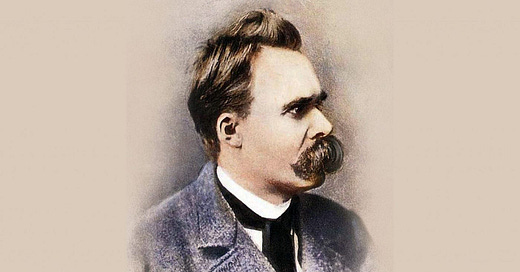



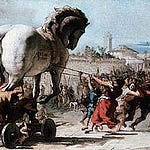
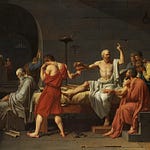

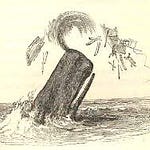
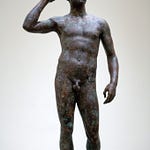
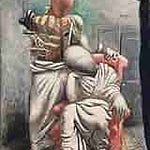


Share this post